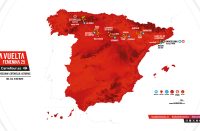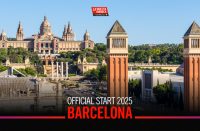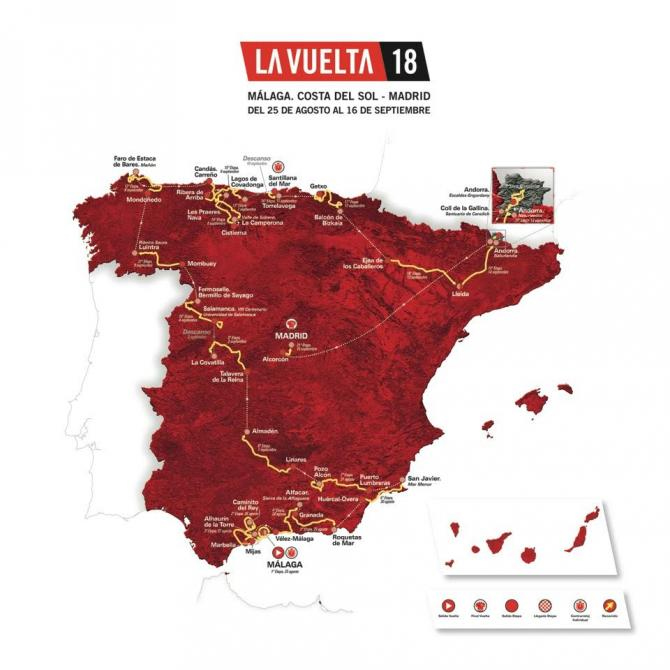
2018 Vuelta a España route:
Stage 1, Saturday August 25: Malaga – Malaga (individual time trial), 8km
Stage 2, Sunday August 26: Marbella – Caminito del Rey, 163.9 km
Stage 3, Monday August 27: Mijas – Alhaurin de la Torre, 182.5 km
Stage 4, Tuesday August 28: Vélez-Malaga – Alfacar, 162km
Stage 5, Wednesday August 29: Granada – Roquetas del Mar, 188 km
Stage 6, Thursday August 30: Huercal-Overa – Saint Javier, 153km
Stage 7, Friday August 31: Puerto Lumbreras – Pozo Alcon, 182km
Stage 8, Saturday September 1: Linares – Almaden, 195.5km
Stage 9, Sunday September 2: Talavera de la Reina – La Covatilla, 195km
Rest day, Monday September 3
Stage 10, Tuesday September 4: Salamanca – Fermoselle, 172.5km
Stage 11, Wednesday September 5: Monbuey – Luintra, 208.8km
Stage 12, Thursday September 6: Mondoñedo – Estaca de Bares, 177.5km
Stage 13, Friday September 7: Candas – La Camperona, 175.5km
Stage 14, Saturday September 8: Cistierna – Les Praeres, 167km
Stage 15, Sunday September 9: Ribera de Arriba – Lagos de Covadonga, 185.5km
Rest day, Monday September 10
Stage 16, Tuesday September 11: Santillana del Mar – Torrelavega (individual time trial), 32.7km
Stage 17, Wednesday September 12: Getxo – Monte Oiz/Balcon de Bizkaia, 166.4km
Stage 18, Thursday September 13: Ejea de los Caballeros – Lleida, 180.5km
Stage 19, Friday September 14: Lleida – Naturlandia (Andorra), 157km
Stage 20, Saturday September 15: Escaldes-Engordany – Coll de la Gallina (Andorra), 105.8km
Stage 21, Sunday September 16: Alcorcón – Madrid, 112.3 km
—
The second part of the race is expected to be the hardest. There will be six finishes at mountaintops and a 32km time trial. The last mountain stage is in Andorra and the finish in Madrid.
Malaga will host the start and two additional opening stages. The race leaves town the morning of the 4th stage. There will be individual prologue the first day.
Unipublic boss Javier Guillen said recently “we wanted a race that starts gently and which reaches a resounding conclusion.”
The race is starting later than usual because of local festivals the weeks before. The heat could be a factor particularly in Alfacar near Sierra Nevada.
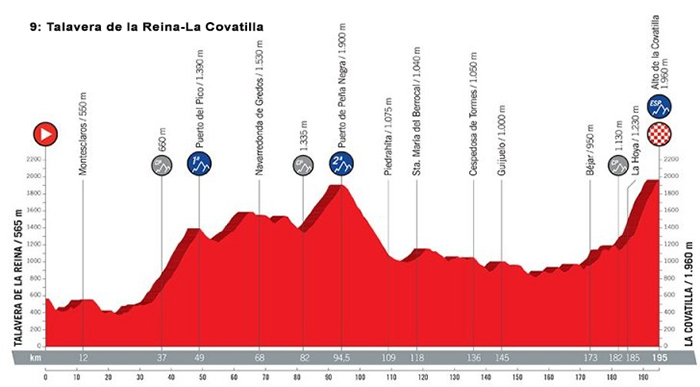
Stage 9: La Covatilla will be one of the first stages marked in the calendar of the general classification favourites. It is a long stage, just before a rest day, where climbers will have to give it their all in order to increase the time differences and to gain a certain advantage over the time-trial specialists.
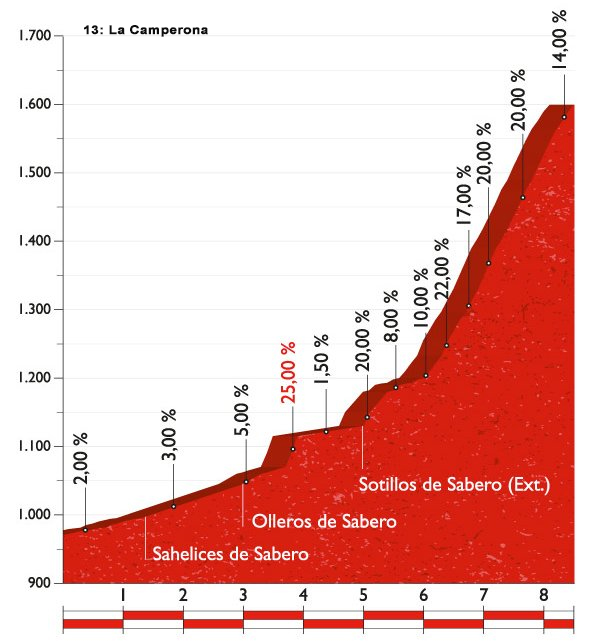
Stage 13 at La Camperona should start showing the race leaders.
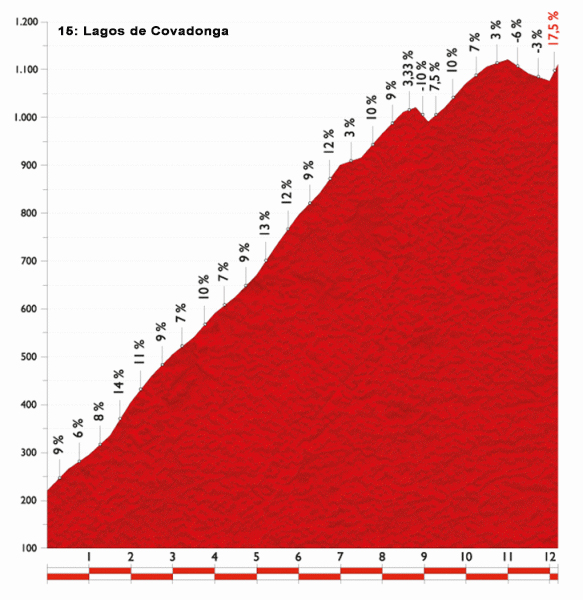
Lagos de Covadonga on stage 15 is second to the Angliru in difficulty. The long time trial near the end may wipe out the gains in the mountains.
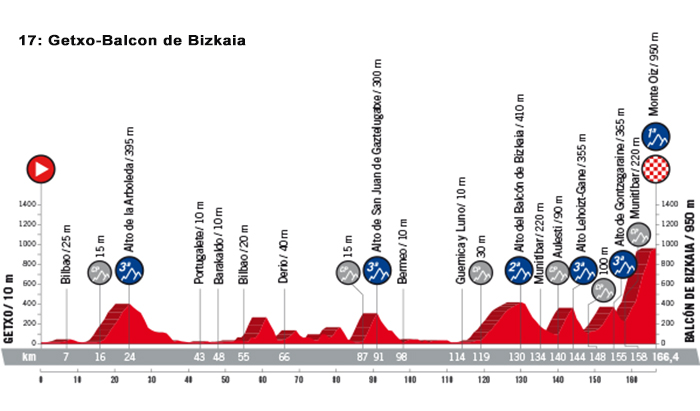
Stage 17 Monte Oiz is a new climb in the Pyrenees. Monte Oiz/Balcon de Bizkaia in the Pyrenees is stage 17 and should help the climbers. The climbs range from 6%-17%.
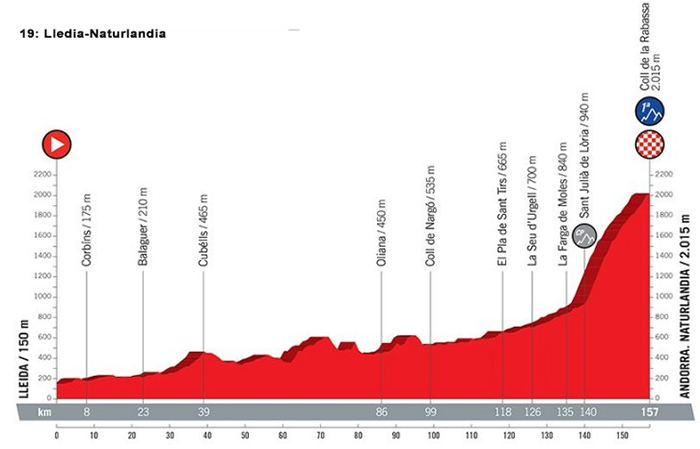
Stage 19 at Naturlandia starts brutally but lightens up but the peloton will pay for that on stage 20 which has 6 climbs averaging 17% on Col de la Gallina. There are 4,000 meters of vertical climbing in stage 20.
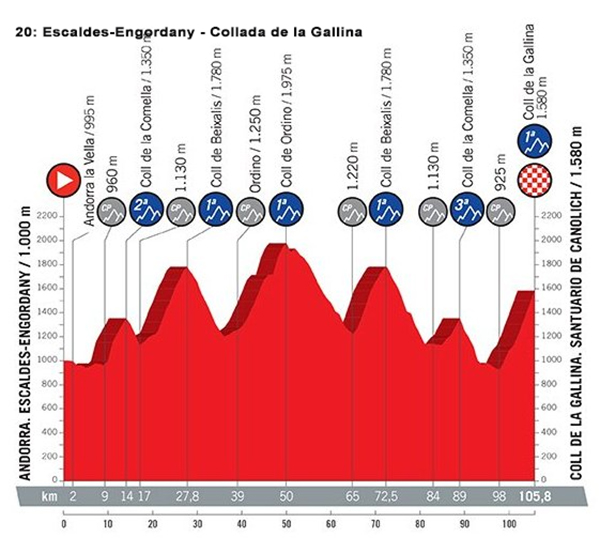
This will be the most time the Vuelta will have been in the Pyrenees since 1957. There will be the same number of mountain finishes as last year.
Then a long transfer to Madrid and the finish.


